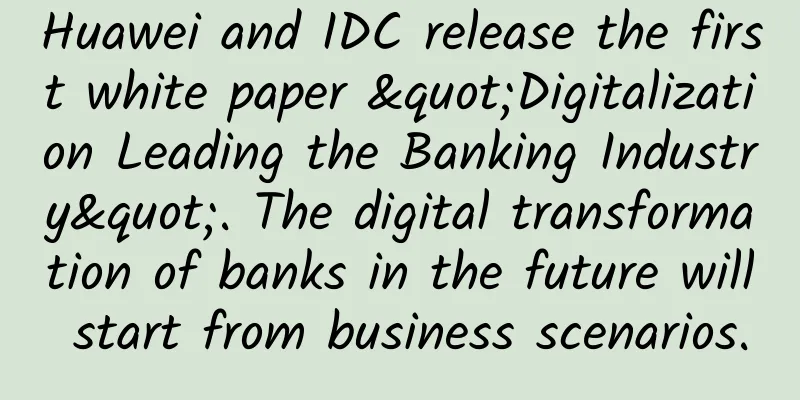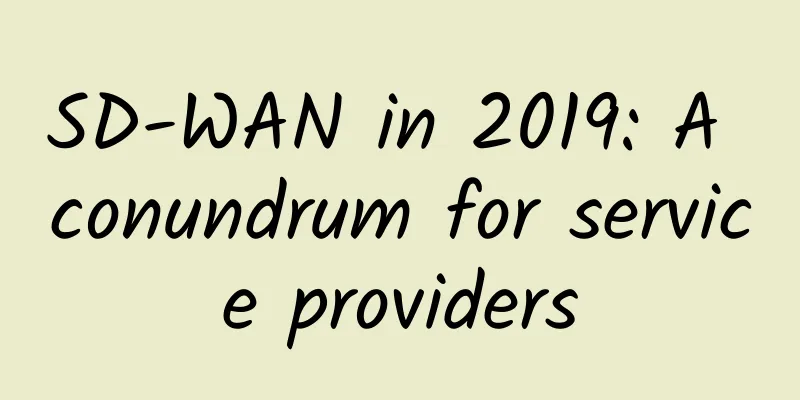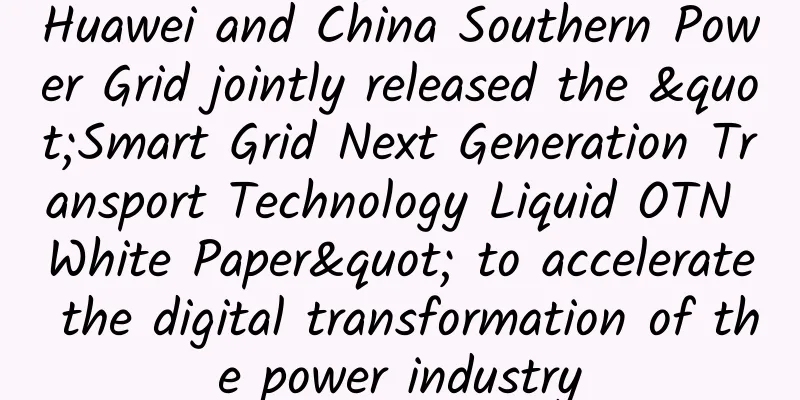Huawei and IDC release the first white paper "Digitalization Leading the Banking Industry". The digital transformation of banks in the future will start from business scenarios.

|
[51CTO.com original article] On April 25, Huawei's Global Financial Summit with the theme of "New ICT, Stimulating New Transformation of Digital Finance" was held at the Shangri-La Hotel in Beijing. On the day of the conference, Huawei and IDC, a world-renowned consulting and service organization, jointly released the white paper "Digitalization of the Global Banking Industry". At the scene, Wu Lianfeng, vice president and top analyst of IDC China, and Liu Limin, president of the Financial Systems Department of Huawei Enterprise BG, jointly accepted an interview with the media and talked about the changes and opportunities in the financial industry.
A portrait of the future bank: open, fully connected, and smarter Wu Lianfeng first shared with reporters the core ideas and main framework of the white paper "Digital Global Banking". He revealed that the next wave of banking reform will start with "fully connected" banks, banks will be more open in technology and business models, traditional banks and Fintech will evolve into an organic ecosystem, and the transformed core system will lay the foundation for new growth in the banking industry. Wu Lianfeng also pointed out that since 2015, on the third platforms of cloud computing, big data, and mobile social networking, technologies such as security, augmented virtual reality, the Internet of Things, artificial intelligence, cognitive robots, 3D printing, and blockchain have been hailed as "industry innovation accelerators." The white paper believes that these technologies are entering the second stage. Unlike the pilot tests in the first stage, the market competition in the second stage is more intense, and based on the platform and ecology, technological innovation is more systematic and the innovation speed is very fast. "After 2020, artificial intelligence will play a greater role, such as realizing process automation, self-healing of faults, and other functions." The reporter learned that in the last part of the white paper, IDC gave three core viewpoints: First, banks will be more open in technology and business models, requiring cloud-based infrastructure and APIs to support fintech; Second, the transformed and strengthened core system lays the foundation for new growth. Through the "connected bank" to handle external processes and workloads, the core system will be more powerful, and the entire ecosystem and applications developed will be activated through APIs. Wu Lianfeng specifically pointed out that the reconstruction of the core and infrastructure will significantly reduce expenses compared to traditional legacy systems. Third, the next generation of customer service requires a new level of insight and understanding of customers. He said that banks need to be able to collect data, quickly analyze, and form actionable insights that improve user experience. The ability to transform data into product services is a key factor in the differentiation of banks in the future. Huawei is behind 35 million transactions every day So what role can Huawei play in the face of such a huge digital opportunity in the financial industry? Liu Limin gave a relatively detailed answer. He told reporters that Huawei's digital banking solution is currently in commercial use in more than 300 financial institutions, including 6 of the world's top 10 banks. Huawei's one-stop mobile banking platform solution has served more than 150 million people in 19 developing regions around the world, with a daily transaction volume of more than 35 million transactions. Liu Limin gave an example. In order to benefit the 85% of Bangladeshi people without bank accounts, Huawei launched a one-stop mobile banking platform in Bangladesh. Driven by a powerful backend, bKash, the most widely used mobile banking platform in Bangladesh, adopts a flexible and open platform to help more people without accounts. Liu Limin sighed that due to the advancement of technology, many seemingly impossible service methods have become possible. Nowadays, some bank robots can answer about 95% of questions, and the remaining 5% will be seamlessly handed over to customer service staff. This is the role of artificial intelligence. He believes that banks will also be a platform in the future, and will also be connected to the outside world, and will gradually evolve from connecting existing customers to helping customers connect to their assets. In the future, many application scenarios will be inseparable from financial means. Under the transformation of technology, banks may become a very important channel. In many business scenarios, upstream and downstream need to rely on financial means to enrich and improve. For example, shared bicycles have become popular all over the world because they have solved the problem of payment. "Obviously, this is the future of achieving true internal openness of the system and true external connection. It must change the entire banking IT architecture today, because today's banking IT architecture, connection is a very difficult thing. This is not only a technical issue, but also a regulatory issue," Liu Limin said frankly, "How to achieve all-round connection in terms of technical capabilities? How to make the connection more secure, reliable and flexible? This is exactly the area that Huawei is good at solving." So how to help the financial industry achieve digital transformation? Liu Limin believes that the financial industry has its own particularity and is subject to strict supervision. In this context, Huawei chooses to achieve it step by step, starting from real business scenarios, solving problems one scenario after another, using new technologies, methods, organizations, and rules, and through the implementation of business scenarios, to promote the digital transformation of the entire financial industry. "We are facing a mobile payment scenario and a supply chain finance scenario, which have relatively real customer needs. From here, we can see how to change the current architecture to support the current business scenarios. When we achieve a certain level, we will naturally transform. So our strategy is to avoid empty talk." Liu Limin said. In an interview with ***, Liu Limin revealed that Huawei's enterprise business is the fastest growing of Huawei's three major businesses. Among the enterprise businesses, Huawei's growth rate in the financial industry is much higher than the average growth of the enterprise business. This first shows that Huawei has always treated the financial industry as a very important strategic industry; secondly, it shows that Huawei's extensive product line and years of accumulation in the ICT field are destined to make Huawei the most suitable provider for bank transformation. "Huawei's vision and strategy in the financial industry are very clear. In the future, Huawei will definitely become the most important partner of major global financial companies." [51CTO original article, please indicate the original author and source as 51CTO.com when reprinting on partner sites] |
<<: Wind River Alex Wilson: Integrated modularity is the development direction of avionics systems
Recommend
Digital-vm: Japan/Singapore dedicated servers 1-10Gbps bandwidth starting from $80 per month
Digital-vm is a foreign hosting company founded i...
NIST aims to make frequency sharing more efficient for wireless networks
Machine learning solutions will help different ra...
About NSA and SA of 5G, you will understand it in seconds after reading this!
The first official 5G standard is about to be rel...
FONE Consolidation: Reshaping the productivity of consolidated financial statements under the trend of business and financial integration
For large group companies, the preparation of con...
Why are operators collectively canceling “unlimited data” packages?
China Telecom announced that it will stop selling...
How is the operator's name displayed on your phone?
[[379606]] This article is reprinted from the WeC...
Dalian will continue to deepen cooperation with Huawei in the fields of intelligent manufacturing and service-oriented manufacturing
[51CTO.com original article] On December 22, 2016...
Last 5 days! VMISS 30% off, Korea/Japan/Los Angeles CN2 GIA/9929/CMIN2 monthly payment from 18 yuan
VMISS's Spring Festival promotion has only a ...
The winner of Huawei Ecosystem Partner Elite Competition is finally revealed, and the cloud ecosystem embarks on a new journey
[51CTO.com original article] On October 28, after...
8 ways to make Android a powerful productivity tool
【51CTO.com Quick Translation】 According to a surv...
Jingwen Internet: Japan VPS free upgrade package, Japan server free upgrade 100M bandwidth, recharge 1000 and get 300 yuan
The last time I shared information about JWDNS wa...
Debunking three myths about edge computing
【51CTO.com Quick Translation】With millions of mac...
From theory to practice: the wide application of MUX VLAN in the network
Background of MUX VLAN MUX VLAN (Multiplex VLAN) ...
What is the difference between a free SSL certificate and a paid one?
With the popularity of SSL certificates, CA agenc...









